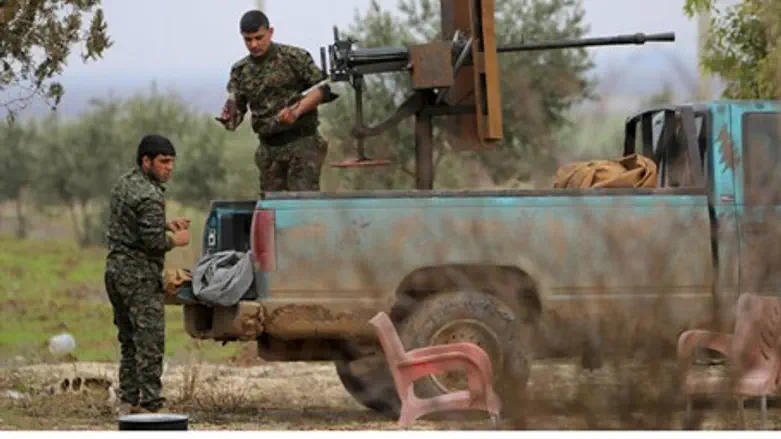
ISIS has lost more ground to Kurdish fighters in the embattled city of Kobane in northern Syria, according to local reports.
"Kurdish forces now control more than 60 percent of the city," said Rami Abdel Rahman, director of the London-based Syrian Observatory for Human Rights.
"ISIS has even left areas that the Kurds did not enter for fear of mines," he added.
Kobane, which lies on the border with Turkey, has been the center of a bloody and symbolic struggle between ISIS, or Islamic State, and the city's Kurdish defenders.
In September it appeared as if the jihadis would seize the town, having largely overpowered the more lightly-armed Kurdish People's Protection Units (YPG) and captured the majority of Kobane. But after weeks of dogged fighting, and backed by US air strikes and reinforcements from Iraqi Kurdish Peshmerga and a small number of Arab Free Syrian Army (FSA) fighters, the Kurds have gained the upper hand and have been gradually pushing ISIS out.
A Kurdish activist from Kobane, Mustefa Ebdi, told AFP that the YPG had advanced eastwards during the past week. The advance has forced ISIS to withdraw from the Kurdish militia's headquarters it previously seized in northern Kobane, after it was already pushed out of the city's central and southern districts.
Ebdi claimed US-led airstrikes had been the decisive factor in defeating ISIS in Kobane, and said the Islamist terror group was now resorting to insurgency tactics after being routed in direct battle, which had included the use of dozens of suicide bombers.
"The jihadists are now using tunnels after failing in their tactics of car bombs and explosive belts," he said.
Meanwhile, elsewhere in Syria government forces killed at least 40 people in barrel-bomb attacks on ISIS-held areas.
Most of those killed in the raids, which took place in al-Bab and Qabaseen near Aleppo, are believed to be civilians.
